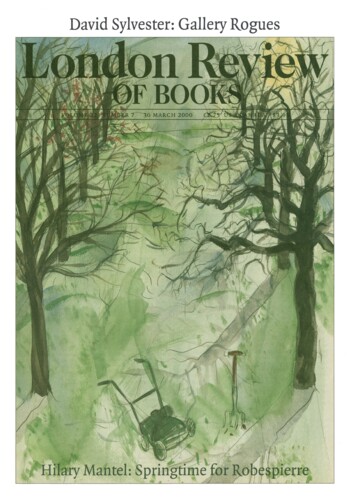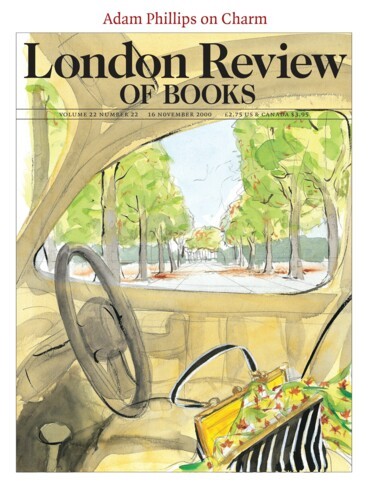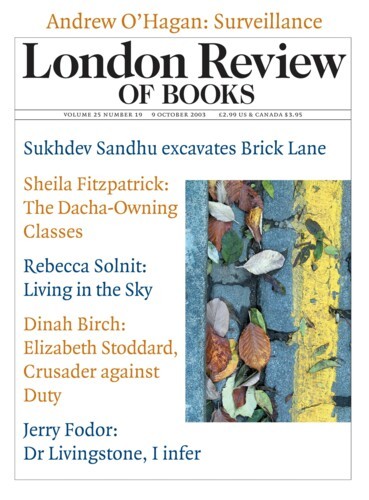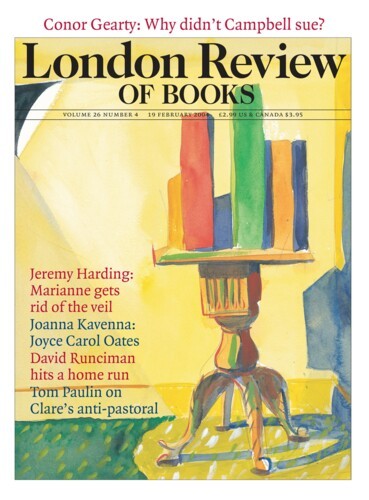Plumping up Philosophy with the Lipids of Desire
Elizabeth Spelman, 30 March 2000
While Richard Wollheim doesn’t go so far as to suggest that the unexamined emotion is not worth feeling, he does proceed on the assumption that it is beneficial for philosophers and non-philosophers alike to have an accurate picture of a powerful and ever-present part of the human constitution. And in a variety of ways he chides philosophers for their inattention to what he takes to be certain facts of the matter about our psyches. To understand what emotions are, Wollheim argues, one must appreciate the very particular role they play in our relationship to the world about us (and inside us). In his inventory of mental phenomena, emotions join beliefs and desires in a holy trinity of roles: beliefs provide us with a picture of the world, desires with things in that world at which we aim, and emotions with an orientation or attitude towards those things. ‘If belief maps the world, and desire targets it, emotion tints or colours it: it enlivens it or darkens it, as the case may be.’ Without the map that belief provides, there would be nothing for desire to target; and without the targets that desires provide, there would be neither the satisfaction nor the frustration from which emotion as an attitude could form. However distinct from desire, emotion nonetheless ‘rides into our lives on the back’ of it. In Wollheim’s psychic cartography, emotions have itineraries: they typically, though not necessarily, proceed along a path marked by nine stages or moments, a prominent subset of which includes the presence of desire, its satisfaction or frustration, the development of a persisting attitude towards the source of such satisfaction or frustration, and the expression of the emotion in behaviour. Working out the details of these ‘characteristic histories’ provides the book’s main structure: it takes up fully two-thirds of the text, and constitutes the major part of his effort to ‘repsychologise’ the philosophical study of emotion.‘




